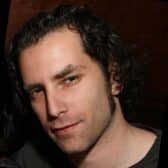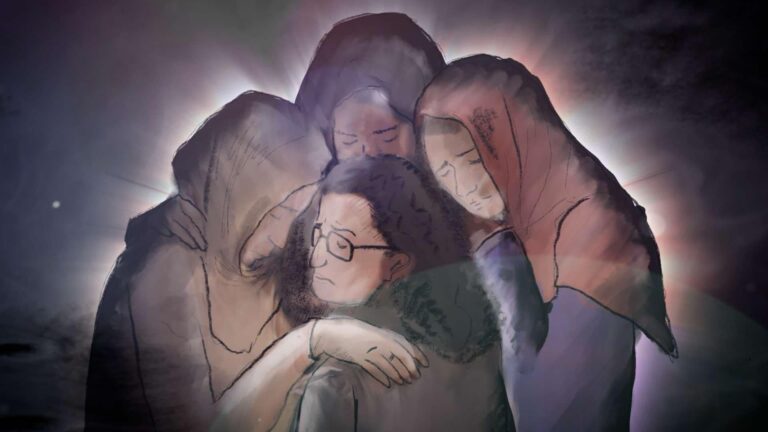
The last thing a rabbi expects to hear in his synagogue on Saturday is the click of a gun.
But that’s exactly what happened to Rabbi Charlie Cytron-Walker as he led services at Congregation Beth Israel in Colleyville, Texas, on January 15, 2022.
That morning, Rabbi Cytron-Walker welcomed in a man he thought might be homeless, offering him warmth and a cup of tea. Instead, Malik Faisal Akram pulled out a gun, taking the rabbi and several congregants hostage for nearly 11 terrifying hours.
The jaw-dropping documentary “Colleyville,” directed by award-winning Israeli filmmaker Dani Menkin, captures the intensity of that day thanks to a rare stroke of circumstance: the Shabbat service was being live streamed over Zoom. This allowed Menkin to incorporate real-time footage showing the horror inside the synagogue — scenes of Cytron-Walker rubbing his head in despair, and a hostage kneeling in fear of execution.
Rabbi Cytron-Walker recounted how he ultimately saved lives by throwing a chair at Akram, distracting him long enough for three hostages to escape, just moments before FBI agents stormed in and killed the terrorist.
Hero or just grateful to be alive?
Despite his brave actions and the instant fame that followed, Cytron-Walker resists being labeled a hero.
“That’s not how I think of myself,” Cytron-Walker told Unpacked. “I’m just glad to still be here.”
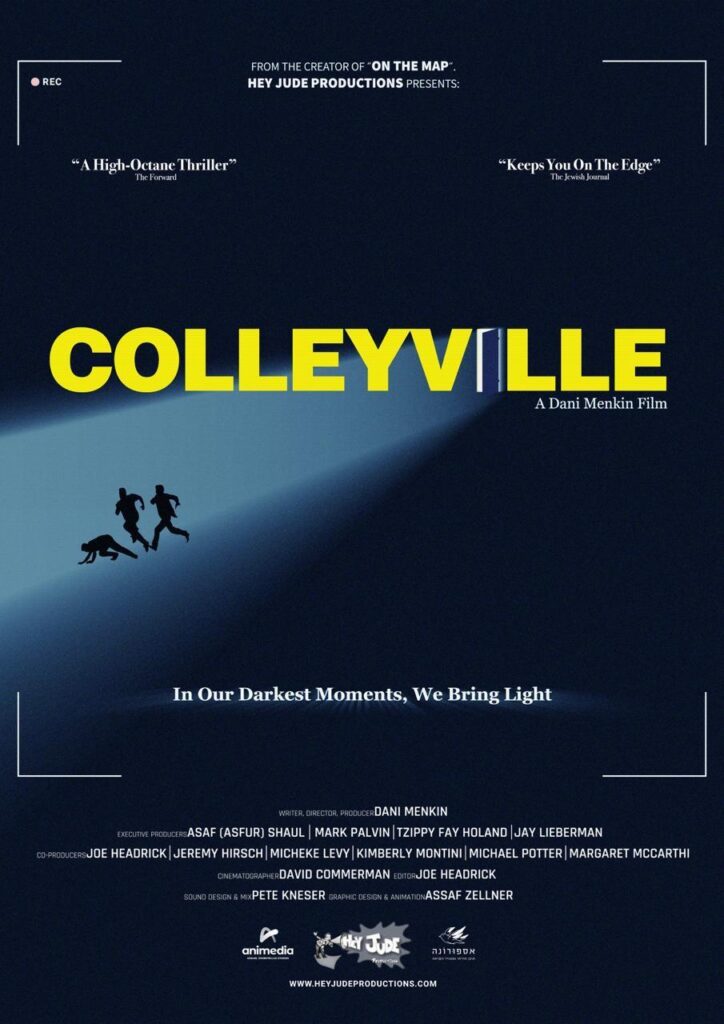
But Menkin thinks otherwise. Not only because of the rabbi’s actions while held hostage for 11 hours, but for how he continues to talk about the importance of interfaith work and hospitality to all.
“I see him as a hero and an inspiring person for what he did,” Menkin told Unpacked. “What inspires me is he kept his values. Even after what he went through, he will not stop loving the stranger.”
Watching the documentary, it’s astonishing how composed Cytron-Walker remains. He is calm and thoughtful, even slowly getting the pizza in a way where the terrorist could see him so he would not be agitated
He credits his calm to six active shooter training sessions he took through the Dallas FBI office.
“You don’t take active shooter training because you expect it to happen,” he said. “I mean, I’ve led thousands of services. I’ve only been taken hostage once.”
Cytron-Walker said he acted and threw a chair because he believed it was their best chance, despite knowing the FBI was likely about to breach the building.
“If I had not thrown the chair, I think the FBI would have come in, but I don’t know how that would have turned out,” he explained. “In training, you learn you do whatever you can to get out of the situation. We believed the bombs were not real, and throwing the chair gave us the distraction to get out safely. Over 11 hours, this was the only time he didn’t have his finger on the trigger, so I worked up the courage thanks to the trainings I went to. Without that, I don’t know if I would have had the courage to throw a chair.”
Rabbi Angela Buchdahl’s calm helped save lives, too
Rabbi Angela Buchdahl of Manhattan’s Central Synagogue, one of the most recognizable rabbis in America (and a past Jeopardy! clue), was also drawn into the crisis.
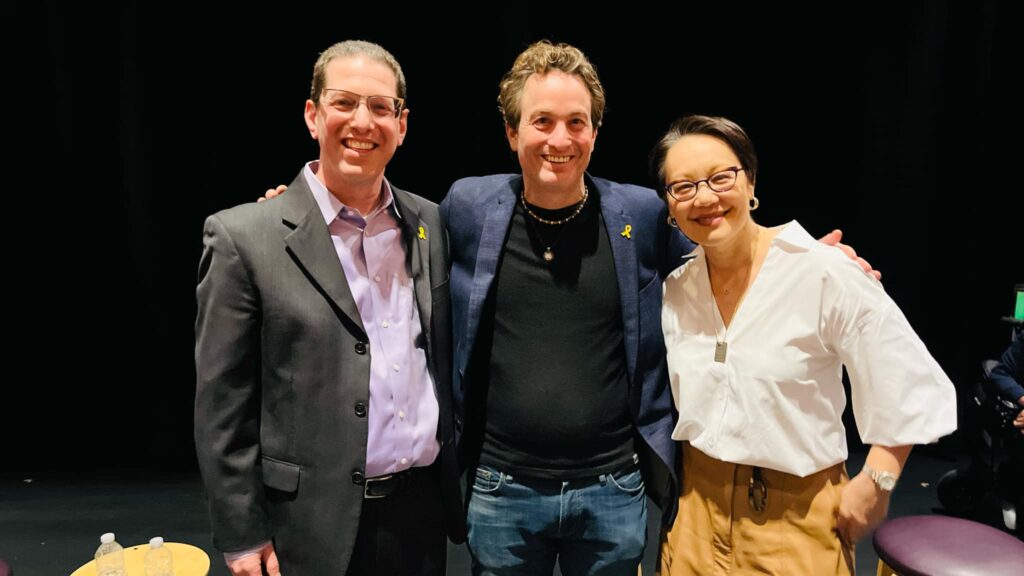
Akram, having Googled her name, bizarrely believed she could help secure the release of Aafia Siddiqui — nicknamed “Lady Al Qaeda” — who was imprisoned nearby in Fort Worth, Texas for attempting to murder U.S servicemen in Afghanistan. Though Siddiqui had no relation to Akram, he forced Cytron-Walker to call Buchdahl during the standoff.
Buchdahl, who had been speaking to her father, who was sick with COVID-19 at the time, saw the alarming text and immediately listened to the voicemail. When Akram got on the phone, she kept him calm — a tactic FBI negotiators had advised.
“All I knew was that the most important thing I could do was buy time for as long as possible,” Buchdahl told Unpacked. “There’s no training for talking to a terrorist. But I know how to calm people in agitated situations. So, I just thought, how do I help him not do something rash? No one wishes to be called in a situation like this, but we get tested all the time, and I feel like it was one of those moments where I could help in some way, and I did what I could do.”
Finding solidarity in Judaism
One of the hostages, Shane Woodward, was in the process of converting to Judaism at the time. Though he admitted it crossed his mind to escape by claiming he wasn’t Jewish, he chose not to abandon an older congregant, Lawrence Schwartz, who had trouble hearing and moving quickly. Woodward said as much as he would have liked to go free, he knew that Schwartz could not run well. Instead, he persuaded Akram to release Schwartz instead of himself.
“I thought morally, he would have very little chance to escape, so it made sense to say he should go free,” Woodward told Unpacked by phone. “When I told my mother what I did, she said, ‘That was very nice of you. Next time, don’t do that.”
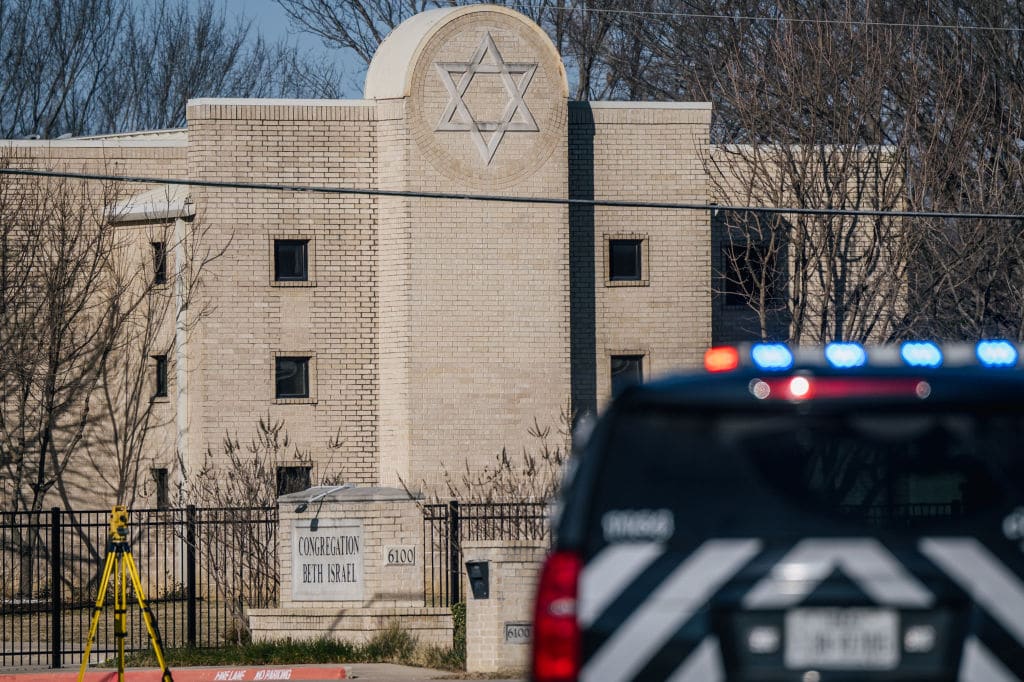
Woodward said he hoped they would survive but knew there was a chance they’d be murdered. He recalled Akram’s volatile emotional state, moments of screaming and threats, and even bizarre requests like asking for an international phone plan to call Manchester police.
In one chilling scene in the documentary, Akram openly says he’s not afraid to die — and hopes his death would inspire others to attack the United States.
“The guy’s emotional state was all over the place and he was unpredictable,” Woodward said.
Many would likely say they were not Jewish, run out of the synagogue, and never look back. But not Woodward. He continued his conversion process and formally became Jewish, not long after the event.
“I think there is an understanding that people have tried to kill us for many years, and there is a lot of hate,” Woodward said. “I did not expect to be taken hostage, although three weeks before, my wife was scared and warned me that I might be. I was glad we got out alive, and I hope nothing like this happens at another synagogue.”
“Colleyville” finds humor in the horror
Despite the tension, Colleyville finds rare moments of levity.
At one point, the hostages order from Pizza Hut — and the employee on the other end tries to upsell them on a larger order. Later, Woodward’s girlfriend fulfills a comically odd promise she had made if he returned safely.
The moments of humor make the tension all the more visceral and human.

Reflecting on “Colleyville” after Oct. 7
At the screening, Cytron-Walker reflected on how his trauma compared to that of Israeli hostages taken by Hamas on Oct. 7, 2023. He noted that he hadn’t been beaten or chained as many hostages in Gaza had been, and he and Rabbi Buchdahl passionately called for the release of all Israeli hostages.
But he also described feeling deeply betrayed after Oct. 7.
While in 2022 he and his synagogue had been embraced with love and support across faiths, many rabbis found after Oct. 7 that their longtime interfaith allies were silent — or worse.
“My message to Jewish communities, to non-Jewish communities, to clergy of all backgrounds, to rabbis who have been hurt deeply, by having their colleagues that they spent years, sometimes decades, building up relationships,” he told the crowd. “…(In Colleyville) we got nothing but love and support. After Oct. 7, so many communities were hurting, feeling so vulnerable. What happened? We got piled on.
“There was no love and support…There was this void, and that just made the trauma that much worse. Despite this, I know that if Jews are the only ones fighting antisemitism, it doesn’t go well.”
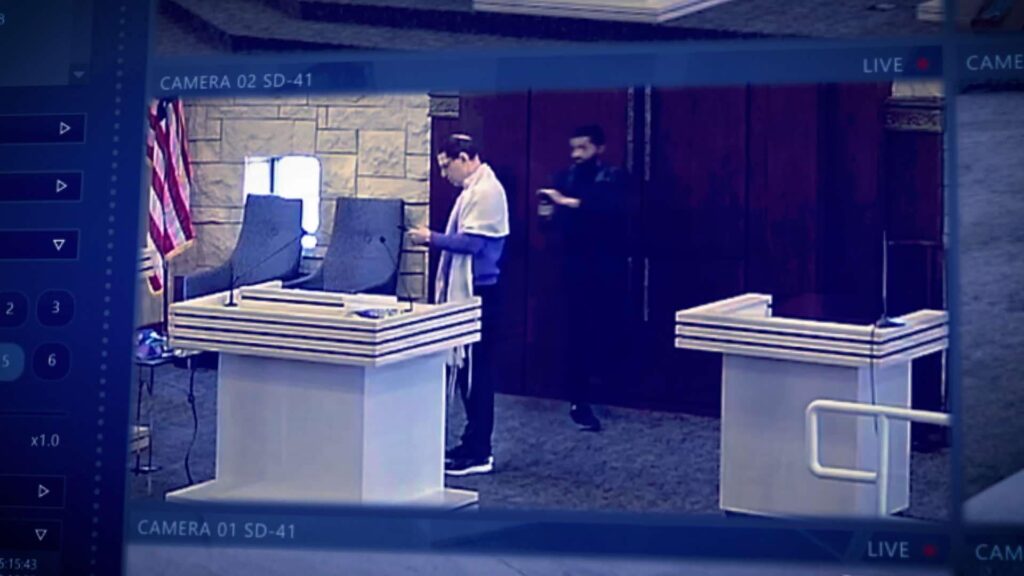
Why “Colleyville” is a must-watch
Dani Menkin, winner of numerous awards including the Israeli Academy Award (Ophir Award) for his documentary “39 Pounds of Love,” delivers another powerful work with “Colleyville.”
This film is both shocking and inspiring. It forces viewers to ask themselves: What would I have done in that situation? It showcases how two rabbis — armed with heart, intelligence, and extraordinary composure — made decisions that ultimately diverted a potential disaster.
Cytron-Walker received a round of applause from the crowd after a particularly poignant remark about the miracle of their survival: “Unlike several moments in Jewish history, in this situation, we didn’t have to say kaddish,” the rabbi said, of the prayer for the dead.
“Colleyville” leaves you marveling at how the terrorist, Malik Akram, didn’t open fire, and how Rabbi Charlie Cytron-Walker had the presence of mind to stay calm when it mattered most. In a moment of life-or-death stakes, Cytron-Walker recognized that Akram’s finger was off the trigger — busy holding a soda can and cup — and seized the opportunity to act.
The film also highlights the unusual fortune that Akram never collected the hostages’ phones, allowing them to maintain a line of communication, nor did he bind or restrain them, which could have made escape impossible.
Synagogue security amid the antisemitism spike
Menkin supports heightened security measures at synagogues, particularly in light of events like the Colleyville attack and the 2018 Tree of Life shooting in Pittsburgh, where 11 Jewish worshippers were murdered.
However, when asked whether he fears the U.S. will adopt security measures as restrictive as those at many European synagogues — where worshippers must often reserve in advance and show photo ID — he expressed hope that it won’t come to that.
“You cannot stop terror 100 percent of the time,” Menkin said. “We saw on October 7, and we saw in a Jerusalem synagogue when there was a shooting outside of it. Do we stop welcoming the stranger? Two Jews probably have five opinions if you ask them.”
Menkin is currently in talks with distributors and booking screenings across the U.S. and Israel. “Colleyville” is a documentary that stays with you, etched into your mind, soul, and heart, while leaving you marveling at the delicate balance between courage, training, and pure luck that averted catastrophe.
“The whole thing was surreal, if I wrote it as fiction, no one would believe it,” he said.
